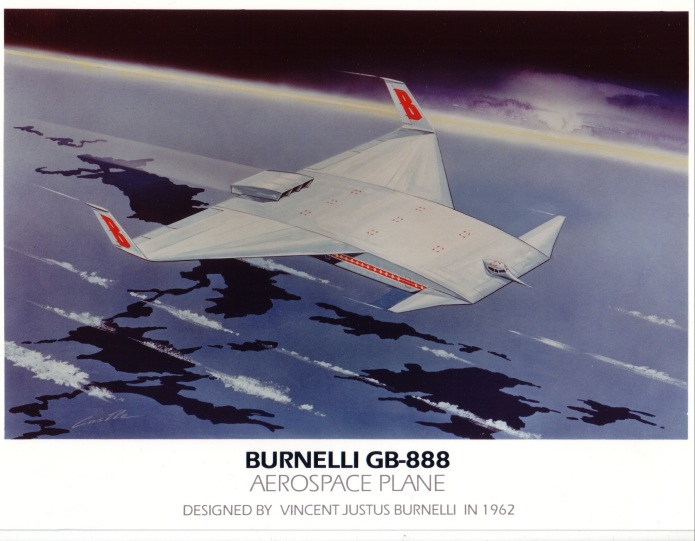Vincent Burnelli was an aircraft designer who specialized in lifting-fuselage aircraft… instead of a cylindrical tube, his fuselages were fat unswept wing cross-sections. The thinking was that this would reduce drag and increase lift and make the vehicles more structurally sound in the event of a crash; while in some cases testing did show some occasional advantages, on the whole these designs did not provide much if any aerodynamic advantage; and once aircraft started flying high enough to require pressurization, the non-circular cross section made pressurization difficult to achieve cost effectively. Sadly, any advantages these designs may have had have been overshadowed by the largely unhinged conspiracy theories that have sprung up around why they haven’t been adopted.
One of the last of Burnellis designs (from about 1962) was the “GB-888,” a supersonic jetliner of unusual configuration. Artwork reproduced below seems to date from the 1980s; here the SST has been relabeled an “aerospaceplane.” The idea, apparently, was to ride the coattails of the X-30 National Aero Space Plane, which had a *vaguely* similar lifting fuselage configuration. As drawn, of course, the GB-888 would make a terrible ASP… the windows on the sides would be melt nicely on re-entry; the sharp edges would concentrate aerothermal heating loads to a fantastic degree; and putting then engines on the top surface would do a fantastic job of getting them out of the airflow, assuring that the engines would not perform very well at all. Still, it’s interesting art.
I have made the high-rez of this illustration available for $4-level patrons at the APR Patreon.
